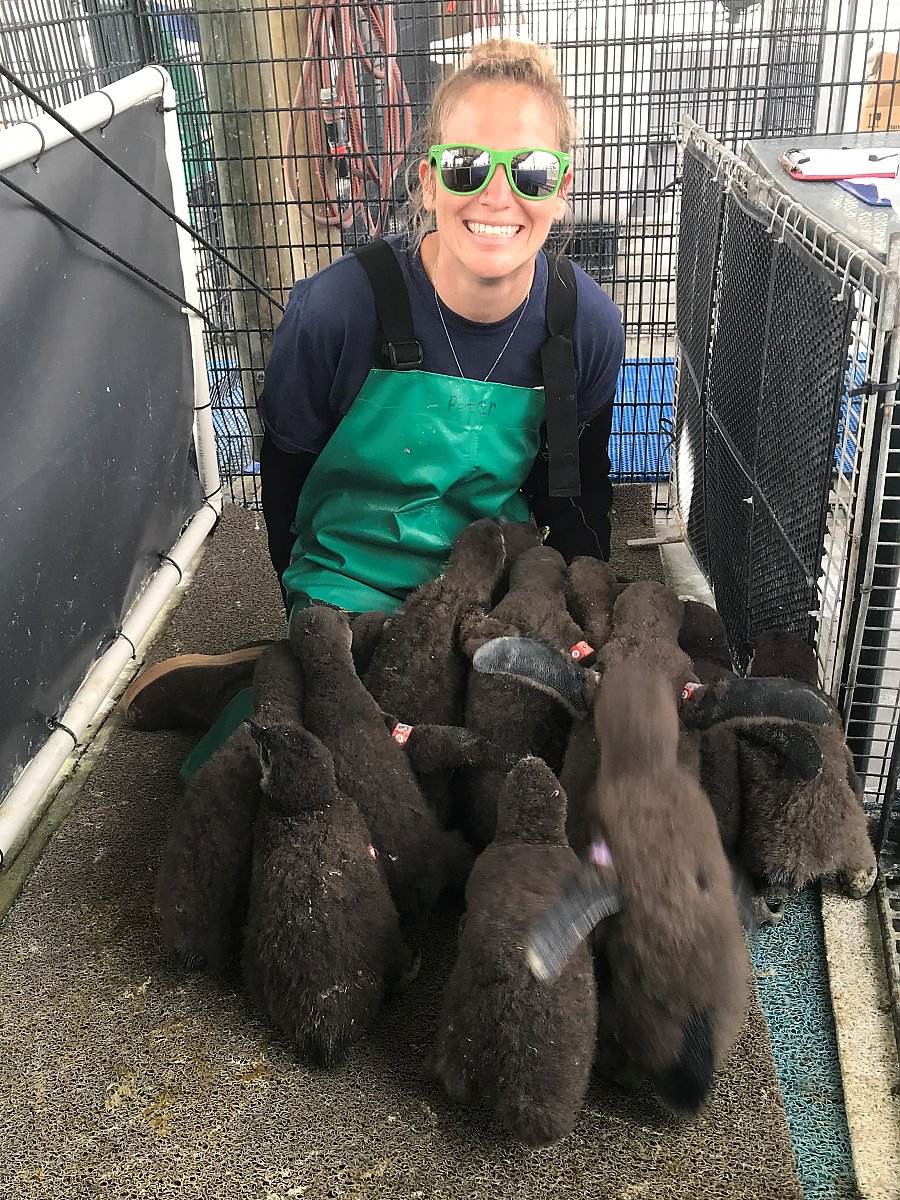Helping Rehabilitate African Penguin Chicks with SANCCOB

In Focus
Wednesday, March 27, 2019
Last fall, Sara Mandel helped with the rehabilitation of African penguin chicks in partnership with the Southern African Foundation for the Conservation of Coastal Birds, or SANCCOB. This work was right up her alley since she takes care of our penguin family here at the Aquarium in her role as a senior aviculturist.
African penguins are an endangered species. Their population has been declining for years due to overfishing, climate change, habitat pollution, and local predators including cape fur seals. All of this has made it difficult for the penguins to build nests and take care of their young during molting season.
The adults stay on land during molting season for about 28 days. During this time period, their feathers aren’t waterproof so they can’t forage for fish. Many of the chicks are left alone without food and can starve to death.

This past season SANCCOB took in 471 chicks, but there have been years when up to 1,000 chicks arrived at the center! Since the chicks have been stranded and are often in poor health when they arrive, the veterinarians have a strict intake process. They weigh, measure, and evaluate each bird’s health to determine how much food they will need and if medication is necessary.

African penguin chicks are fed four times a day in the chick-rearing unit at SANCCOB. Their feeding schedule is as follows:
- 8:00 a.m. - Darrows feed
- 10:00 a.m. - formula feed and hand-fed fish
- 12:00 p.m. - water-only feed at (many of chicks arrive very dehydrated!)
- 3:30 p.m. - second formula feed and fish feed
Darrows is a solution that contains electrolytes and other nutrients. The formula is made up of blended fish, nutrients, vitamins, and water. In between the feeds, some of the chicks are given medicine and a treatment to fight any potential infections. Medicine is also given at feed times to ease the stress of being fed by the caretakers with so many other birds.
Once the penguin chicks have gained some weight and show improvements in their health, they graduate to a new area of the rehabilitation center. The blue pens have a swimming area where the chicks learn how to swim in 20-minute increments until they are able to swim for one hour on their own. Once they reach this swimming milestone and are at a nice healthy weight, they get a final medical check to determine whether they are healthy enough for a release back into their natural habitat.

While I was in South Africa, I was lucky enough to experience a penguin release. We took twelve of the penguins to Stony Point. It’s a natural reserve with an existing large colony of African penguins. The penguin caretakers lined up on the beach with the soon-to-be released penguins. I remember being a bit nervous as we opened the boxes for the penguins to waddle out onto the beach. They instinctively headed into the waves to start swimming and disappeared into the water before we knew it. It was a beautiful moment that I’ll always remember.
Going to South Africa to work with African penguin chicks was the trip of a lifetime! I’m so proud to work for a place that is dedicated to the care and conservation of animals and their habitats.

